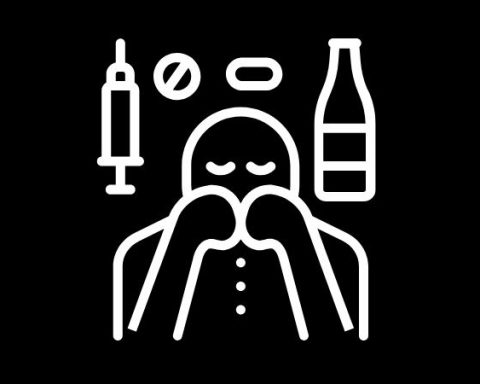Table of Contents
Affiliate link notice: As an affiliate of BetterHelp and other third-party vendors, We will receive compensation if you make a purchase using the links provided on this page. For more information, visit our disclosure page.
Last Updated on September 5, 2025 by Randy Withers
Addiction is often misunderstood as a matter of willpower or moral failure, but a trauma-informed perspective offers a different framing. Addiction is an intelligent survival strategy the nervous system adapts as a response to overwhelming pain, trauma, or disconnection.
When recovery is viewed this way, we shift from shame and judgment to curiosity, compassion, and safety. It also expands the goal beyond abstinence alone, focusing on healing the root causes that drive compulsive behaviors.
Here are seven approaches to trauma-informed care that support sustainable recovery and long-term healing.

1. Reframe Addiction as an Adaptation to Suffering
Shame loses its grip when we stop asking, “What’s wrong with you?” and start asking, “What happened to you?” Many addictive patterns began as strategies to soothe, numb, or survive what felt unmanageable.
Seeing addiction as an adaptation rather than a flaw opens the door to compassion and curiosity. It allows people to understand that their behaviors had a purpose, even if that purpose no longer serves them.
2. Go Beyond Abstinence to Address Root Causes
Stopping a harmful behavior is important, but abstinence alone doesn’t heal the wounds. Trauma, nervous system dysregulation, and relational disconnection can continue to drive compulsions long after the substance or behavior is gone.
Sustainable recovery means exploring the trauma while rebuilding safety, self-trust, and connection. Without this deeper work, sobriety can feel like constant effort — a state of “white-knuckling” rather than genuine stability.
3. Heal the Nervous System First
Many traditional programs focus on changing thoughts and behaviors but overlook the body’s survival responses. A nervous system stuck in fight, flight, freeze, or fawn can make sobriety feel unsafe or unbearable.
At Alchemy Collective Austin, we use somatic practices like breathwork, grounding movements, and body-based resourcing. This helps regulate and rewire the system so that safety is restored from the inside out. When the body feels safe, the mind can follow.
4. Integrate Somatic and Parts Work for Whole-Person Healing
Talk therapy can be transformative, but it often isn’t enough on its own. Somatic work addresses the body’s role in memory, regulation, and resilience, while “parts work” helps identify and understand the different aspects of self. This includes the part that abuses substances, the part that feels ashamed, and the part that longs for healing.
By welcoming and integrating all aspects rather than fighting them, recovery becomes a process of wholeness rather than suppression. Reducing inner conflict and creating stability.
5. Build Practical Recovery Skills for Real Life
Recovery doesn’t happen in a vacuum — it’s lived out in daily routines, relationships, and challenges. Practical skills like emotional literacy, boundary setting, nervous system regulation, and grounding rituals are essential for navigating life without returning to old coping strategies.
These skills are practiced and reinforced so they become second nature, whether it’s pausing to regulate before a difficult conversation or starting the day with grounding practices.
6. Treat Relapse as Information, Not Failure
Relapse is often seen as a sign of weakness, but it’s better understood as a message from the nervous system that something was overwhelming or missing. Instead of framing it as defeat, trauma-informed care approaches it with curiosity: What happened? What support was needed?
This perspective prevents the shame spiral that can deepen addictive patterns and instead uses relapse as an opportunity for learning, reconnection, and recommitment to healing.
7. Personalize the Journey for Every Individual
No two recovery journeys are the same. Personalizing the approach with therapy, somatic practices, bodywork, or other supports ensures that healing aligns with each person’s history, nervous system needs, and personal goals.
Responsive, individualized plans evolve alongside the person, adapting as they grow and change. Recovery becomes less about following a rigid formula and more about cultivating a process that truly fits.
Why This Matters
Recovery can be framed too narrowly, focusing only on quitting a behavior. Trauma-informed care includes nervous system health, trauma resolution, relational repair, and embodied safety.
This changes everything. Instead of battling addiction as an enemy, people begin to understand it as a once-useful adaptation — one that can be replaced with healthier, more life-affirming ways of coping and connecting.
Final Thoughts
Addiction is not a black-and-white choice or a matter of willpower. It’s a reflection of a system seeking safety. At Alchemy Collective in Austin, Texas, we believe sustainable recovery is the route to becoming fully alive, connected, and empowered.
When recovery addresses the nervous system, integrates the whole self, and builds practical strategies for safety, healing becomes not only possible but sustainable.
Sources:
- van der Kolk, B. A. (2015). The Body Keeps the Score: Brain, Mind, and Body in the Healing of Trauma. Penguin Books.
- Substance Abuse and Mental Health Services Administration (SAMHSA). (2014). Trauma-Informed Care in Behavioral Health Services (TIP 57). Rockville, MD: SAMHSA.







